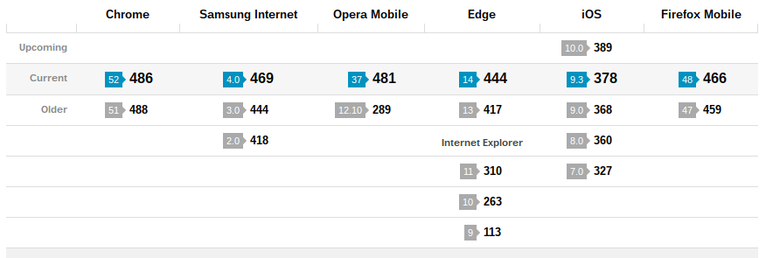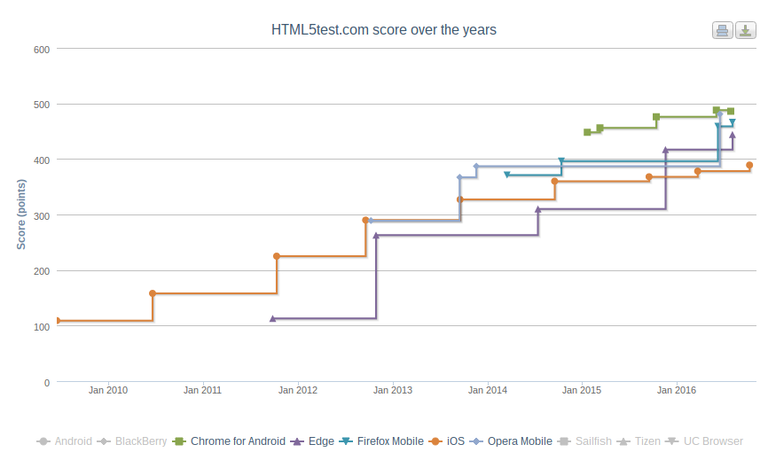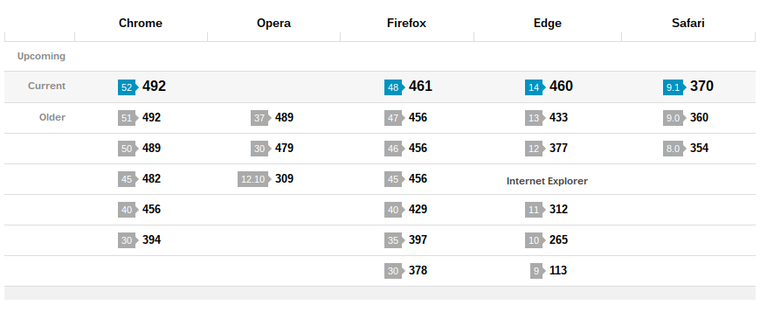Today,
the French press announced that Nexedi was suing Apple.
I will explain here why Nexedi took this decision.
Helping Apple to better support HTML5
The primary reason for starting this lawsuit is because we hope that it
will help Apple to sooner support the latest Web and HTML5 standards on its
iOS platform - the operating system used by all iPhones.
Anyone running html5test (http://html5test.com/)
on his iPhone will find out that current iOS support of HTML5 Web technologies
is lagging behind other platforms.

This situation is not new. The progress of iOS in terms of HTML5 support is
slower than for other platforms. The gap between iOS and other smartphones in
terms of HTML5 support is extending rather than closing.

In the early 90s I have been an Apple developer myself. At that time Apple
personal computers had the best support for TCP/IP and the Web. Other platforms
such as Windows were lagging behind. Apple platforms could support more
multimedia formats than others, even including Unix workstations. Nowadays it
seems to be the opposite.
Below is a list of the things impossible to do with an iPhone as of October 2016
but which work on about any other platform:
-
Run OfficeJS HTML5 spreadsheet in
offline mode (lack of support for service workers)
- Participate in a Hubl.in HTML5 online
conference (lack of support for web RTC)
-
Watch videos in webm format (lack of support for
webm)
Improving iOS HTML5 support: Apple does not allow us
The reason why iOS does not support HTML5 technologies is related to the current
state of Safari web browser. Safari is also lagging behind on the MacOS desktop
platform.

What we usually do at Nexedi to handle this situation is to recommend our users
or customers to install a different web browser on MacOS so that they get better
HTML5 support.
We tried the same approach on iOS. We tried using Chrome on iOS and found that
support of HTML5 by Chrome on iOS was the roughly the same as support of HTML5
by Safari on iOS. In other terms, Chrome on iOS is lagging behind Chrome on any
other platform.
How is that possible?
After searching blogs and news, we ended up reading the contract that Apple is
requesting developers to approve to join their AppStore. In its French version,
it states that Apple does not allow publishing any application in their appstore
that downloads and executes software - with the exeception of Apple's own Webkit
(in French: "Webkit intégré d’Apple").
A Web browser is an application that, among other things, downloads and executes
Javascript code. It is thus not allowed to publish a Web browser in Apple's
AppStore unless this Web browser is based on Apple's own Webkit
library. This is why the Chrome Web browser on iOS relies on Apple's own Webkit
library rather than on the more modern Blink
library used on all other platforms. This is the reason Chrome's HTML5 support
on iOS is roughly the same as Safari.
We would be delighted at Nexedi to create a Web browser for iOS with better
HTML5 support based on a recent version of Blink library for example. But as soon
as we would publish it, it would be banned from Apple's AppStore. Many developers
have experienced this situation already. Many companies are being hurt by this
situation. Some companies have already begged Apple to improve HTML5 support in
iOS with little significant results.
Abandoning iOS: Not an Option
We once considered proposing to our clients looking for better HTML5 support to
stop using iPhones and iOS. Afterall an equivalent Android smartphone with
better HTML5 support is barely more than 100€.
But this is not really an option because in some important market segments
iPhones are the dominant devices with a loyal user base. iPhones are used everywhere -
from executives worldwide to the upper middle class in China, so stopping
to support iOS in our solutions would mean stopping support for one of the largest
markets in the world (China) as well as the market segment that eventually
decides to pay our invoices (executives worlwide).
Abandonning iOS is thus not an option.
Backporting HTML5 Code to iOS: Wasted Innovation
For now the only short term option viable for Nexedi is to circumvent the
limitations of HTML5 support in Apple's iOS. This effort is steadily increasing.
The same effort that we are spending now on supporting iOS by backporting HTML5
code could be used to provide any of the following free software solutions:
- a Web Browser for iOS with much better HTML5 support
- a Free HTML5 accounting package for small businesses that runs offline in their browser
- a Free HTML5 video editor that can run offline
- a Free HTML5 music production system that can run offline
- a Massive Open Online Course (MOOC) to teach how to deploy ERP5 accounting
- a Free decentralized instant messaging system that everyone can participate without installing anything on their PC or smartphone
- a Free blockchain system that everyone can participate without installing anything on their PC or smartphone
- etc.
The day Apple lets us publish a browser based on the HTML5 library of our choice,
we will divert the effort we are currently spending into backporting HTML5 code
to one of the projects listed above.
Civil Law is our Friend
Considering the situation of HTML5 on iOS and the effort that is wasted at Nexedi
and beyond, we have decided to research the possibility of using Law to help
Apple open the doors of its AppStore to Web browsers with better HTML5 support.
A few years ago, France passed a Law to protect small companies such as Nexedi
against large companies that try to impose unbalanced contracts.
The precise words are: "déséquilibre significatif entre les droits et obligations des parties".
Nexedi and our Lawyer (J-B. Soufron at FWPA)
believe this situation applies to Apple's AppStore contract. Not
allowing the publication in Apple's AppStore of web browsers that are not based
on Apple's own Webkit raises in our opinion the same issues as if Carrefour
(a company similar to Walmart) was not selling any beans but those based on
Carrefour's seeds. This may be legal in other countries but in France, it is most
likely not.
Thanks to Civil Law it is more difficult in France than in the USA to get a ruling
that contradicts the wording of the law. We thus have some hopes that this
lawsuit will lead to a better situation for HTML5 support on iOS.